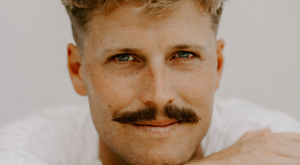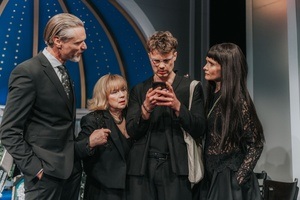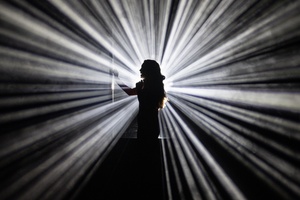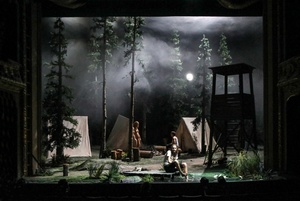all the rivers: TERRAFORM
Das sagt der/die Veranstalter:in:
An Archive in Progress made by Aymara Llanque Zonta, Maricarmen Gutiérrez, Promona Sengupta, Rasha Al Jundi and Raras UmaratihOpening: Thursday, May 16, 18.00 – 20.00 Uhr, ausland
“Knowing names is my job. My art. To weave the magic of a thing, you see, one must find its true name out. In my lands we keep our true names hidden all our lives long, from all but those whom we trust utterly; for there is great power, and great peril, in a name.”
Archmage Ged in The Wizard of Earthsea, Ursula K. Le Guin
Four women* share dispatches and information about names – their own names, the names of their cities, their people, their lands. Each of these names have been through a series of historical changes, the true names are hidden under layers and layers of time, altered again and again by colonial terraformation.
I saw this in my mother’s depopulated village and the Palestinian driver who speaks Hebrew confirmed that the Hebrew and English are the same (and they had changed the name of the village from Beit Dajan to Bet Dagan)
Terraformation is an ideologically driven colonial practice of changing other planets in the image of Earth, to forcefully make them inhabitable for colonial expansion. Among the practices of altering the soil chemistry, plant and animal population, air quality and water bodies, terraformation also includes renaming of “new” territories in languages spoken by those who are going to occupy it. This practice, found in science fiction stories as a fictional concept is actually what takes place through colonialism.
It was in English class in 8th grade that I was first asked my opinion about the changing of my city’s name. The teacher was training us in how to speak good English, a cornerstone of colonial education, and the great promise of success in India. I remember stumbling through the words nervously, scared of making grammatical errors, forgetting to think about what it really meant for Calcutta to be called Kolkata again. I ended up saying, “It will remain the same city”. I was wrong.
The four women*, storytellers from historically colonized lands, share snippets of a collective archive they are building together, tracing the terraformation of their lands. In their collective process of annotating and describing the processes of naming and renaming of their homes, they compile a dictionary of names that have already been given by others. To find the true names of things, as Le Guin calls it, we have to collectivize our archives and search for a common language, the language of the dispossessed.
In my village there is a river, on which stands a bridge. On the two sides of this bridge stood the ancestors of my mother and my father, ready with their weapons, sworn to be enemies forever. The indigenous peoples, impoverished landless labourers, had had enough. They had come to destroy their masters, the white skinned Spanish speaking colonizers.
In this Open House, the public is invited into our lexicographical laboratory, to bear witness to the history of our names as well as our process of finding the true namesof things.
Preisinformation:
Donation based







